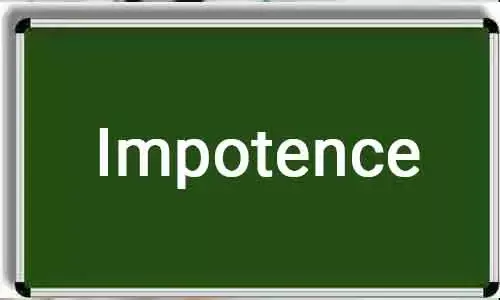- Home
- Medical news & Guidelines
- Anesthesiology
- Cardiology and CTVS
- Critical Care
- Dentistry
- Dermatology
- Diabetes and Endocrinology
- ENT
- Gastroenterology
- Medicine
- Nephrology
- Neurology
- Obstretics-Gynaecology
- Oncology
- Ophthalmology
- Orthopaedics
- Pediatrics-Neonatology
- Psychiatry
- Pulmonology
- Radiology
- Surgery
- Urology
- Laboratory Medicine
- Diet
- Nursing
- Paramedical
- Physiotherapy
- Health news
- Fact Check
- Bone Health Fact Check
- Brain Health Fact Check
- Cancer Related Fact Check
- Child Care Fact Check
- Dental and oral health fact check
- Diabetes and metabolic health fact check
- Diet and Nutrition Fact Check
- Eye and ENT Care Fact Check
- Fitness fact check
- Gut health fact check
- Heart health fact check
- Kidney health fact check
- Medical education fact check
- Men's health fact check
- Respiratory fact check
- Skin and hair care fact check
- Vaccine and Immunization fact check
- Women's health fact check
- AYUSH
- State News
- Andaman and Nicobar Islands
- Andhra Pradesh
- Arunachal Pradesh
- Assam
- Bihar
- Chandigarh
- Chattisgarh
- Dadra and Nagar Haveli
- Daman and Diu
- Delhi
- Goa
- Gujarat
- Haryana
- Himachal Pradesh
- Jammu & Kashmir
- Jharkhand
- Karnataka
- Kerala
- Ladakh
- Lakshadweep
- Madhya Pradesh
- Maharashtra
- Manipur
- Meghalaya
- Mizoram
- Nagaland
- Odisha
- Puducherry
- Punjab
- Rajasthan
- Sikkim
- Tamil Nadu
- Telangana
- Tripura
- Uttar Pradesh
- Uttrakhand
- West Bengal
- Medical Education
- Industry
Elevated estradiol levels may lead to impotence, finds study

Erectile dysfunction is a persistent inability to attain an erection sufficient to permit satisfactory sexual intercourse and is on the rise globally. It has an adverse effect on the quality of life of affected persons. Past studies have shown that elevated estradiol levels could inhibit penile erection, but the relationship between estradiol and erection of the penile tip or base has not been extensively researched.
Dr Zhi-He Xu at Qilu Medical College, Shandong University, Jinan, China and colleagues conducted a cross-sectional study and have found that estradiol inhibits penile erection, particularly at the penile base. The study has been published in the Journal of Translational Andrology and Urology.
The researchers investigated estradiol's effects on the erection of the penile tip and base, with a cross-sectional study of 135 patients with erectile dysfunction (ED), based on scores of ≤21 according to the International Index of Erectile Function-5. All patients were tested for nocturnal penile tumescence, blood pressure (BP), serum glucose, total cholesterol (TC), triglyceride (TG), high-density lipoprotein (HDL), low-density lipoprotein (LDL), luteinizing hormone (LH), follicle-stimulating hormone (FSH), prolactin (PRL), progesterone (P), estradiol (E), and testosterone (T). Univariate and multivariate analyses were used to assess associations between estradiol levels and erection at the penile tip and base.
We found no obvious relationship between erection time at penile tip and estradiol levels but did observe a negative correlation between base erection time and estradiol level [hazard ratio (HR): −0.11; 95% CI: −0.80–1.72]. With increasing estradiol concentration, multivariate analysis showed an obvious reduction in base erection time among patients with normal Rigiscan results (HR: −0.31; 95% CI: −1.63–1.29) (P<0.05) as estradiol concentration increased.
The researchers concluded that estradiol inhibits penile erection, particularly at the penile base which is more sensitive to estradiol than the penile tip. Moreover, when the effective erection time of the penile base lasts longer than 10 min, estradiol has a more obvious inhibitory effect on penile base erection.
For further reference log on to :
Transl Androl Urol. 2019 Dec; 8(6): 574–582.
Dr Kamal Kant Kohli-MBBS, DTCD- a chest specialist with more than 30 years of practice and a flair for writing clinical articles, Dr Kamal Kant Kohli joined Medical Dialogues as a Chief Editor of Medical News. Besides writing articles, as an editor, he proofreads and verifies all the medical content published on Medical Dialogues including those coming from journals, studies,medical conferences,guidelines etc. Email: drkohli@medicaldialogues.in. Contact no. 011-43720751


